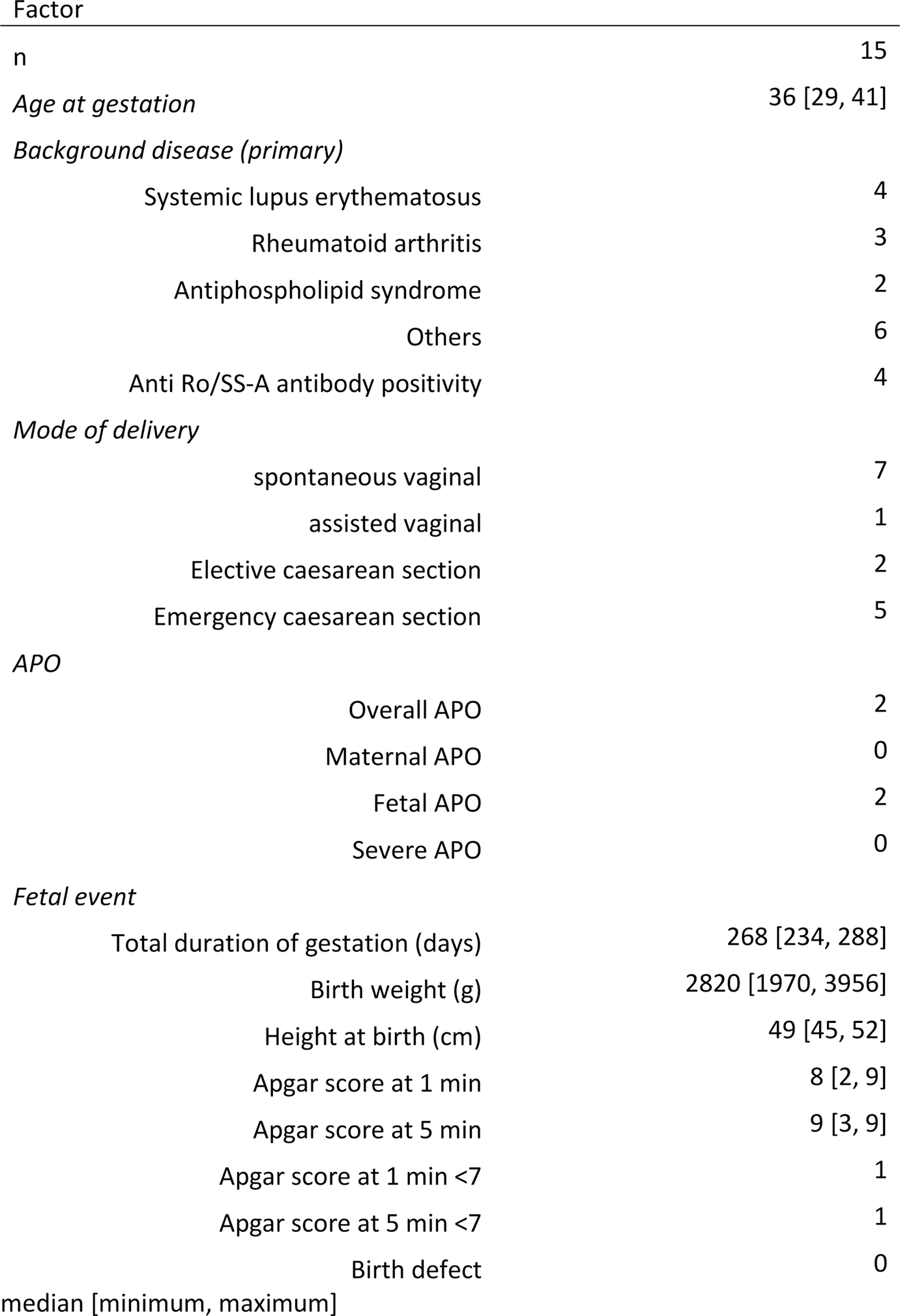

Background: Management of pregnancy in patients with rheumatic and musculoskeletal diseases (RMDs, such as systemic lupus erythematosus, antiphospholipid syndrome, and rheumatoid arthritis) requires close collaboration between rheumatologists and obstetricians. [1, 2]
Objectives: Recognizing the need for increased collaboration, regular interdepartmental meetings were initiated to share information and improve education for young clinicians. The primary goal was to strengthen collaboration between the rheumatology and obstetrics departments to improve the management of pregnant patients with RMDs. The initiative also aimed to improve the exchange of information and the education of young doctors through regular interdepartmental meetings and mutual lectures.
Methods: Monthly 25-minute joint meetings between the two departments were held at a tertiary medical facility. Due to the COVID-19 pandemic, a hybrid format (web conferencing and face-to-face attendance) was adopted in fiscal year (FY) 2022. Regular meeting agendas included reporting birth cases, discussing pregnancy cases, sharing information and troubleshooting infertility treatment cases, and improving interdepartmental collaboration. At the end of FY2022, a survey of staff in both departments was conducted regarding these meetings. Based on the feedback from the survey, bi-directional mini-lectures on pregnancies complicated by RMDs were initiated starting in FY2023.
Results: In FY2022, there were discussions on 16 birth cases, a total of 108 pregnancy cases, and 9 infertility treatment cases. Details of the 15 cases delivered in our hospital in FY 2022 are shown in Table 1. SLE was the most common background disease among pregnant women (4 cases), followed by rheumatoid arthritis (3 cases) and antiphospholipid antibody syndrome (2 cases). There were no serious adverse pregnancy outcomes (APOs) for the mothers, and the two cases of premature birth had uneventful postnatal courses leading to discharge. The results of FY2023 will also be reported at the conference.
Table 1. Details of the 15 cases delivered at our hospital in FY 2022

Improvements in interdepartmental collaboration included 1) standardized protocols for corticosteroid coverage and 2) coordinated aspirin prescribing.
According to the staff survey, 68.4% felt that their understanding of pregnancy management had deepened and 94.7% felt that interdepartmental collaboration had improved.
Based on the results of the questionnaire, mini-lectures for mutual understanding were initiated; a total of eight lectures were held in FY2023 on the most requested topics (Table 2).

Conclusion: The implementation of joint meetings between rheumatology and obstetrics has greatly enhanced communication and is a critical step in patient care. In the context of progressive work style reforms, the sustained practice of these concise and effective meetings promises not only to deepen mutual understanding among professionals, but also to significantly improve the standard of care for our patients. Looking ahead, this collaborative model sets a promising precedent for interdisciplinary teamwork in health care.
REFERENCES: [1] ANDREOLI, Laura, et al. EULAR recommendations for women’s health and the management of family planning, assisted reproduction, pregnancy and menopause in patients with systemic lupus erythematosus and/or antiphospholipid syndrome. Annals of the rheumatic diseases , 2016, annrheumdis-2016-209770.
[2] SAMMARITANO, Lisa R., et al. 2020 American College of Rheumatology guideline for the management of reproductive health in rheumatic and musculoskeletal diseases. Arthritis care & research , 2020, 72.4: 461-488.
Acknowledgements: NIL.
Disclosure of Interests: None declared.